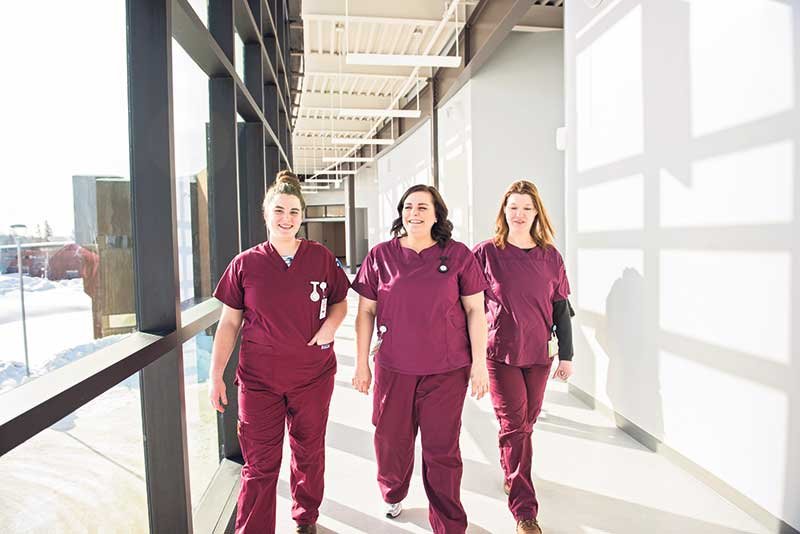Catalyzing economic health, sustainability and growth
Canadore College makes it a priority to meet community needs, for example, by boosting sustainability and food security and improving access to health care. supplied
With more than 175 quality programs across 12 schools of study – offering microcredentials, apprenticeships, certificates, diplomas and degrees – Canadore College takes a forward-facing approach that meets the needs of learners and communities today as well as prepares the ground for future success.
“At Canadore, we continue to venture into new areas to meet the demands of the 21st century and beyond,” says Canadore president and CEO George Burton. “Our graduates are the world’s next leaders, social citizens, innovators, entrepreneurs and catalysts for economic health, sustainability and growth.”
There is much that is happening that sets the college apart from other post-secondary institutions. Canadore’s innovative, state-of-the-art genomics laboratory is equipped with some of the most leading-edge technology available in Canada, and students engage in real-time research. During the COVID-19 pandemic, for example, students participated in an Ontario-wide coalition to sequence and characterize coronavirus strains.
Providing a ground-breaking approach to educating the next generation of Canada’s health and social service professionals is The Village, a world-class health and wellness facility. The first of its kind in Canada, it blends Indigenous, Eastern and Western health practices. Theory taught in the classrooms seamlessly becomes practical experience in a full suite of student-led public health and wellness clinics on campus.
As the world moves towards a more sustainable future, Canadore’s new Zero Emission Training Centre offers students the chance to train in targeted technologies, including electric vehicles, battery electric recreational vehicles and yard tools.
Students in Canadore’s Digital Cinematography begin making films in their first year. The program offers training in state-of-the-art equipment and direct pathways into the industry.
The Innovation Centre for Advanced Manufacturing and Prototyping (ICAMP), together with the new Concept Development Lab, puts students right at the heart of new product design and development with companies across northern Ontario.
There is a wide range of educational choices available across Canadore College’s four beautiful campuses, all located within a short drive north of Toronto, Ont. There are three in North Bay – Aviation Technology, Commerce Court and College Drive – and one in Parry Sound. In partnership with Stanford International College, Canadore@Stanford has campuses in Scarborough, Mississauga and Brampton.
“What they have in common is that teaching and resource staff stay connected to their former industries, and the availability of first-rate student success services,” says Mr. Burton. “Our student experience, modes of program and service delivery set us apart from other colleges.”
Canadore welcomes approximately 5,600 students each year from more than 400 communities across Ontario and Canada, and 35 countries internationally. Each year, approximately 1,000 graduates join a network of more than 70,000 alumni working across the globe.
“At Canadore, we learn by doing the work we are training for while we’re still in college, and that will make us better employees once we go to work in our fields of study,” says Jessica Crook, Environmental Technology student and president of the Canadore Student Council. “It is exciting to attend Canadore because there are so many opportunities for students to participate in initiatives that will make a difference in people’s lives and will make the world a better place.”
Canadore College is well on its way to meeting its 2031 goal to become carbon neutral by investing in projects to reduce its carbon footprint and programs that support the green economy.
Sustainable Canadore is participating in the second round of the ImpAct Climate Campus Living Labs project with Colleges and Institutes Canada. One of only two post-secondary institutions in Canada to be chosen for two consecutive projects, Canadore will measure forest health and carbon sequestration rates of the 650 acres of forest behind the College Drive Campus. In 2022, the college focused on food security for rural and Indigenous communities by growing produce in its off-grid grow pod.
To view this report on The Globe's website, visit globeandmail.com
To view the full report as it appeared in The Globe's print edition: Colleges & Institutes


